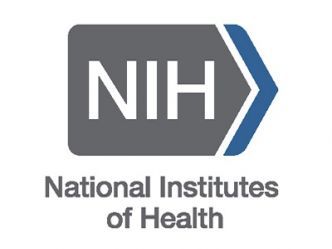About Us
ProtonVDA focuses on transforming the practice of proton therapy with instruments that enable facilities to efficiently and confidently deliver optimal treatments fully realizing the promise of the “Bragg peak”.
Leadership
Don “Fritz” DeJongh
Chief Executive Office
and co-founder of ProtonVDA. With a Ph.D. in Physics from Caltech and 22 years of experience as a physicist at Fermilab, Fritz DeJongh studied the clinical needs and constraints that were not being addressed by long-term academic programs, and developed several concepts, aimed at addressing these needs in a rapid and cost-effective way, which serve as the basis for our business plan.
Victor Rykalin
co-founder of ProtonVDA
With an M.S. in Electronics and Silicon Technology, and experience with R&D and project management in both academic and industrial settings, Victor has held leading roles in the conception, management, design, R&D, and construction of pCT projects at Loma Linda and Northern Illinois Universities.
Miha Ulčar
Passionate and goal-driven professional, focused on bringing value to leading innovation and research medical companies. More than 10 years of experience in selling and implementing complex IT solutions. Experience in leading teams in multicultural environments.
ADVISORY BOARD

Mark Pankuch
Ph.D., DABR.

Mark Pleško
Ph.D

Niek Schreuder
MSc, DABR.

Reinhard Schulte
MD, MS, DABR

James S. Welsh
MD, MS, FACRO.
Director of Medical Physics and Dosimetry at the Northwestern Medicine Chicago Proton Center where he oversees the medical physics-related operations for the proton center and four nearby photon centers. Assistant Professor of Radiation Oncology at Northwestern University’s Feinberg School of Medicine. Has brought expertise in proton beam line systems to several proton imaging projects.
Co-founder and CEO of Cosylab, which has partnered with ProtonVDA to commercialize proton imaging. Received the Award of the European Physics Society for control systems in experimental physics in 2001. Elected to the Engineering Academy of Slovenia in 2012. Member of the EU-Japan business round table, of the Board of Governors of the J. Štefan Institute, of the Association for Technical Culture of Slovenia and of the Programme Council of the Faculty for Mathematics and Physics of the University of Ljubljana.
Vice President and Chief Medical Physicist at Provision Healthcare. Board-certified medical physicist with more than 28 years of experience in all aspects of proton beam radiotherapy including project management, research and development, and clinical training. Track record spans managing large-scale clinical projects and bringing new medical facilities into clinical operation.
Trained as a physicist and radiation oncologist. More than 25 years of clinical practice and research experience in proton therapy at the world’s first hospital-based Proton Therapy Center at Loma Linda University Medical Center. Extensive research experience in range uncertainty and biological effectiveness uncertainty in proton therapy. Principal Investigator for several NIH-funded projects relating to hadron therapy and proton imaging.
Professor, Medical Director and Director of Clinical and Translational Research in the Department of Radiation Oncology of Loyola University Chicago Stritch School of Medicine. Chief of Radiation Oncology at Edward Hines Jr. VA Hospital. President of the American College of Radiation Oncology. Clinical practice includes treatment of patients at the Northwestern Medicine Chicago Proton Center. Extensive experience in basic and clinical research in image guidance.
History
ProtonVDA was founded in December 2014 in Chicago IL to develop a new modality of medical imaging based on the principle that the best way to target cancer with protons is to image the patient with protons.
The co-founders of ProtonVDA, Don DeJongh and Victor Rykalin have worked with a team of physicists, engineers, computer scientists and clinicians to achieve a break-through: The demonstration, at two clinical facilities, of a fully functional clinical prototype, able to deliver, in real-time, detailed radiographs of objects imaged with protons.
Milestones
December 2014
Founded
SEPTEMBER 2015
Phase I NCI SBIR project starts. Successfully demonstrates proof-of concept.
JANUARY TO APRIL 2016
Participate in NCI I-Corps program.
SEPTEMBER 2016
Phase II NCI SBIR project starts. Successfully demonstrates fully functional prototype.
MAY 2018
First proton radiography images presented at Cincinnati PTCOG conference.
MAY 2019
Start of strategic partnership with Cosylab d.d
JUNE 2019
First proton CT images presented at Manchester PTCOG conference.
APRIL 2020
Second NCI SBIR project " A Proton Tomography System for Optimization of Proton Therapy" starts.
DECEMBER 2020
First comparison of a PRAD image with a Digitally Reconstructed Radiography derived from an X-RAY CT.
ProtonVDA is now able to routinely and automatically acquire proton radiographs. Company has also successfully demonstrated three-dimensional image reconstruction from PVDA pCT platform scans*.
*PVDA pCT platform is still in development phase
Cooperations
In 2019, ProtonVDA has entered into a strategic partnership with Cosylab d.d, a global hi-tech company from EU, with a detailed plan to implement the clinical integration of proton imaging technology into proton therapy treatment rooms, obtain FDA clearance for the proton imaging product, and embark on sales and marketing to find the first partners for clinical adoption of this breakthrough technology.
ProtonVDA, along with Cosylab and Northwestern Medicine Chicago Proton Centre, is now ready to implement the first clinical proton imaging system.
Cosylab offers software engineering and system integration services, including product-based solutions for proton therapy systems, and brings experience and intimate knowledge of proton therapy processes and planning along with a vast portfolio of proton-therapy related software.
Cooperation with NIH
ProtonVDA is committed to conducting research without bias and with the highest scientific and ethical standards. We have established the following policies in order to ensure compliance with NIH standards for objectivity in research according to the requirements of the Financial Conflict of Interest (FCOI) regulation 42 CFR Part 50 Subpart F.
Start
a Dialog
with Us




